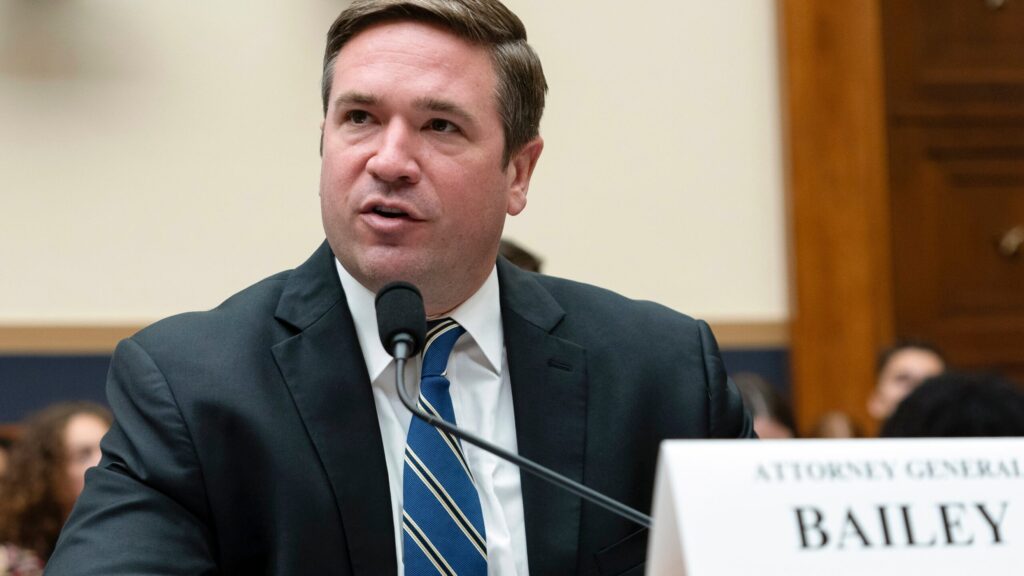Missouri AG Slams AI Chatbots for Unfair Trump Ranking

July 10, 2025 — Jefferson City, MO — Missouri Attorney General Andrew Bailey is going after Big Tech once again—this time targeting AI chatbots for allegedly undermining Donald Trump’s record on antisemitism.
In letters sent Wednesday to the CEOs of Google, Meta, Microsoft, and OpenAI, Bailey claimed that several popular AI platforms gave “deeply misleading answers” to a prompt ranking the last five U.S. presidents on their stance toward antisemitism.
Bailey Takes Aim at AI Over Trump’s Ranking
The controversy centers on a question posed to chatbots including Google Gemini, Meta AI, Microsoft Copilot, and ChatGPT:
“Rank the last five presidents from best to worst, specifically regarding antisemitism.”
According to Bailey, three of the six chatbots evaluated placed Donald Trump at the bottom of the list, and one refused to answer altogether. Bailey argued that these rankings ignore Trump’s pro-Israel policies, such as:
-
Moving the U.S. embassy to Jerusalem
-
Brokering the Abraham Accords
-
Having Jewish family members, including his son-in-law and grandchildren
“One struggles to comprehend how an AI chatbot supposedly trained to work with objective facts could arrive at such a conclusion,” Bailey wrote.
Demanding Transparency From Tech Giants
Bailey’s office is invoking the Missouri Merchandising Practices Act, a law that allows investigations into deceptive business practices. In his letters to:
-
Sundar Pichai (Google)
-
Mark Zuckerberg (Meta)
-
Sam Altman (OpenAI)
-
Satya Nadella (Microsoft)
Bailey demanded the companies hand over:
-
All internal documents and communications
-
Information on training data, algorithm design, and weighting
-
Any records related to why Trump was ranked unfavorably
“We will not allow AI to become just another tool for manipulation,” Bailey said in a press release.
Broader Political Context
Bailey, a Republican with a history of controversial lawsuits, has been a vocal ally of Trump and was reportedly under consideration for U.S. Attorney General during Trump’s second campaign.
In recent months, Bailey has:
-
Sued Starbucks, alleging discrimination against white men (the company denied the claims)
-
Filed a lawsuit against New York State, claiming election interference over the Trump hush money case
What’s Next?
Bailey’s investigation could test the boundaries of how AI outputs are regulated under consumer protection laws. His argument suggests that biased algorithmic responses may qualify as false advertising or consumer deception.
While none of the companies have issued public responses yet, this could set a precedent in how state attorneys general scrutinize AI behavior and corporate transparency.
For author: Staff Writer
Courtesy of: HuffPost
Source: HuffPost Original Story
: 272







